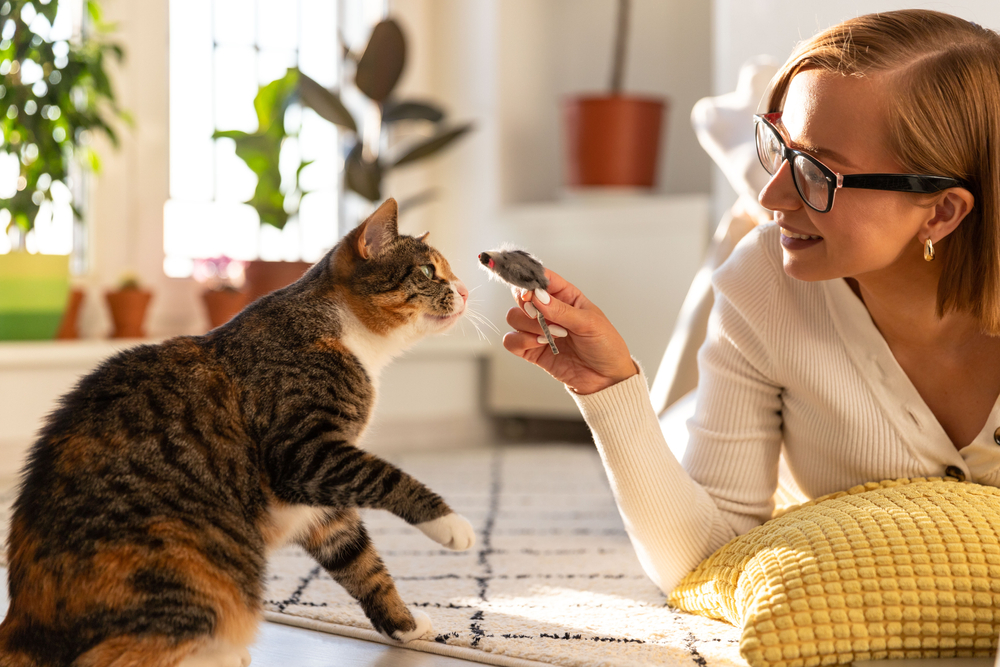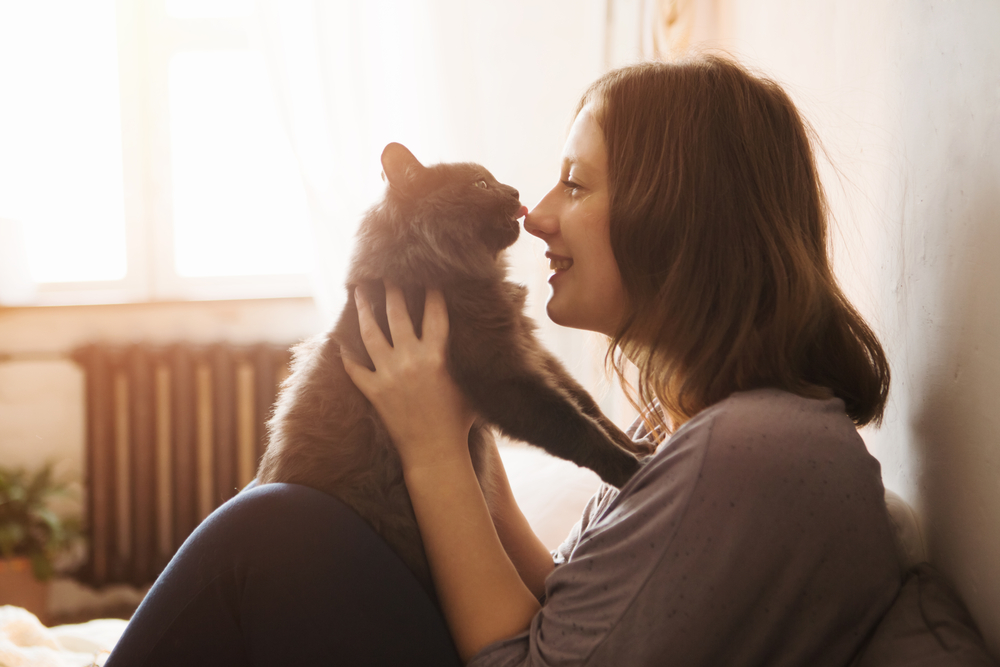The great outdoors is full of many potential dangers, such as busy roads, predators, poison, parasites, and life-threatening diseases, but indoor cats need more than safety—they need mental and physical stimulation to prevent boredom and behavioral issues. Our Memorial Villages Animal Hospital team wants to provide do’s and don’ts to help ensure your indoor cat remains happy.
DO evoke your cat’s hunting instinct at meal times
Cats living in the wild spend a large portion of their day hunting, and offering your cat a kibble-filled bowl deprives them from using their hunting instinct. Make meal time more exciting for your cat by trying the following suggestions:
- Organize a treasure hunt — Separate your cat’s meal into several small portions, and hide the food in different places around your home. Initially, keep the hiding places simple, but as your cat gets the hang of the game, find more difficult spots to make the search more exciting.
- Use a food puzzle toy — Make your cat use their brain to access their meal by using a food puzzle toy for their food. Several toys are commercially available, or you can try out your crafting skills and make your own. One suggestion—put small amounts of food in several egg carton compartments, cover all the compartments with paper or cardboard cutouts, and let your cat sniff out which compartments hold the food.
DON’T neglect your cat’s litter box
Cats appreciate a clean litter box, and can be particular about their bathroom setup. Follow these suggestions to ensure your cat finds their litter box acceptable:
- Provide enough boxes — If you have multiple cats, provide one box for each cat, plus one extra box.
- Use appropriate litter — Most cats prefer unscented, clumping litter that is only about two to three inches deep in the box.
- Place the box properly — Place your cat’s litter box in a quiet, low-traffic area where they won’t be startled or disturbed. If you have multiple home levels, ensure your cat has access to a box on each level.
- Clean the box — Scoop your cat’s litter box at least twice a day, and clean the box and change out the litter at least once a week.
- Don’t use extraneous items — While clean-up may be easier, most cats don’t appreciate covered boxes or box liners.
DO provide elevated space for your cat
Cats are predators as well as prey animals, and they need elevated resting areas to feel safe and secure. Ensure your cat has access to space where they can survey their environment from a high vantage point by following these suggestions:
- Provide a cat tower — Purchase or build your own cat tower to give your cat a dedicated elevated area.
- Install shelving — Elevated shelves around your house let your cat navigate rooms while remaining at a high vantage point.
- Clear elevated space — Remove objects from the top of the refrigerator and cabinet tops, so your cat has easy access to these elevated locations.
DON’T forget your cat needs to scratch
Cats have an instinctual need to scratch, to leave scent to mark their territory, to stretch, and to remove dead nails. Provide appropriate scratching areas for your cat to ensure they don’t target your furniture. Suggestions include:
- Determine your cat’s preference — Cat scratchers come in different orientations and different materials. Offer several options to determine which scratchers your cat prefers.
- Provide several scratchers — Provide scratchers in each room, so your cat isn’t tempted to attack your furniture.
- Use catnip — Put catnip or treats on a new scratcher to attract your cat’s attention.
DO provide a cat window perch
Cats enjoy watching birds and small mammals, and a comfortable, easily accessible window perch can keep them entertained for hours. You can also place a bird feeder outside the window to ensure your cat can watch the many entertaining characters.
DON’T assume your cat needs a buddy
Some cat owners get a new cat because they think their cat is lonely, but this plan can backfire if you don’t introduce the cats properly. Suggestions include:
- Keep them separated — Initially, keep the new cat in a separate room to allow them to adjust to their new surroundings.
- Exchange bedding — Exchange your cat’s bedding to help your cats get used to each other’s smell.
- Make good associations — Feed your cats on either side of a closed door, to help them make positive associations.
- Supervise your cats — When you initially introduce your cats, supervise them until you are sure they will coexist peacefully.
DO schedule daily play sessions with your cat

Ensure you take time every day to spend time with your cat. Use wand style toys and laser pointers to help encourage active play, and change out their toys frequently to ensure they don’t get bored.
Keeping your cat indoors is important to protect them from outdoor dangers, but they need mental and physical stimulation to ensure they remain happy. If your cat’s behavior is concerning, contact our Memorial Villages Animal Hospital, so we can determine if boredom is contributing to the problem.









Leave A Comment